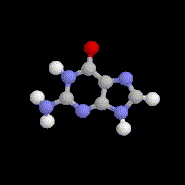

December 9, 2013
Johnson & Johnson (NYSE:JNJ) disclosed that FDA accepted and granted Priority Review to a BLA for siltuximab (CNTO 328) to treat multicentric Castleman's disease (MCD) in patients who are HIV-negative and human herpes virus 8 (HHV-8)-negative. The PDUFA date is not disclosed. An MAA is also under accelerated assessment by EMA for the indication. The pharma submitted the applications in September. Multicentric Castleman's disease is a rare type of Castleman's disease that affects more than one group of lymph nodes in different anatomical areas. Castleman's disease is a B cell proliferative disorder that is not malignant but is nonetheless fatal because of systemic inflammation.

J&J also presented data at the American Society of Hematology meeting showing that IV siltuximab every three weeks plus best supportive care (BSC) led to a greater durable tumor and symptomatic response rate, the primary endpoint, vs. placebo plus BSC (34% vs. 0%, p=0.0012) in the Phase II MCD2001 trial to treat MCD. Median time to treatment failure was not reached in the siltuximab arm vs. 134 days in the placebo arm. The double-blind, international trial enrolled 79 patients with multicentric Castleman's disease who are HIV-negative and HHV-8-negative. Siltuximab is a chimeric mAb against IL-6.
Johnson & Johnson’s Janssen unit has filed siltuximab in the US and EU for the treatment of patients with the rare blood disorder, multicentric Castleman disease (MCD). The disorder leads to the over-production of lymphocytes and enlargement of lymph nodes. Siltuximab has orphan drug status in the US and Europe, and if approved would be the first drug specifically for the treatment of MCD.
The market application submitted by Janssen is for the use of siltuximab in patients with MCD who do not have HIV or human herpes virus-8. The monoclonal antibody targets and binds to human IL-6, which has been identified as a critical driver in the pathogenesis of MCD.

Siltuximab (INN) (also known as CNTO 328, Anti-IL-6 chimeric monoclonal antibody or cCLB8) is a chimeric (made from human and mouse proteins)monoclonal antibody. It binds to interleukin-6.[1] Siltuximab has been investigated for the treatment of metastatic renal cell cancer,[2] prostate cancer,[3] and Castleman's disease,[4][5] among other types of cancer.[6]
It has undergone a phase I clinical trial in Patients With B-Cell Non-Hodgkin's Lymphoma, Multiple Myeloma, or Castleman's Disease.[7]
It gave encouraging results in a small trial for advanced ovarian cancer.[8]
Encouraging results have been reported from a phase II trial for relapsed or refractory multiple myeloma.[9]
References
- ^ International Nonproprietary Names for Pharmaceutical Substances (INN, prepublication copy), World Health Organization.
- ^ Rossi, J. -F.; Négrier, S.; James, N. D.; Kocak, I.; Hawkins, R.; Davis, H.; Prabhakar, U.; Qin, X.; Mulders, P.; Berns, B. (2010). "A phase I/II study of siltuximab (CNTO 328), an anti-interleukin-6 monoclonal antibody, in metastatic renal cell cancer". British Journal of Cancer 103 (8): 1154–1162.doi:10.1038/sj.bjc.6605872. PMC 2967052. PMID 20808314.
- ^ Karkera, J.; Steiner, H.; Li, W.; Skradski, V.; Moser, P. L.; Riethdorf, S.; Reddy, M.; Puchalski, T.; Safer, K.; Prabhakar, U.; Pantel, K.; Qi, M.; Culig, Z. (2011). "The anti-interleukin-6 antibody siltuximab down-regulates genes implicated in tumorigenesis in prostate cancer patients from a phase I study".The Prostate 71 (13): 1455–1465. doi:10.1002/pros.21362. PMID 21321981.
- ^ Van Rhee, F.; Fayad, L.; Voorhees, P.; Furman, R.; Lonial, S.; Borghaei, H.; Sokol, L.; Crawford, J.; Cornfeld, M.; Qi, M.; Qin, X.; Herring, J.; Casper, C.; Kurzrock, R. (2010). "Siltuximab, a Novel Anti-Interleukin-6 Monoclonal Antibody, for Castleman's Disease". Journal of Clinical Oncology 28 (23): 3701–3708. doi:10.1200/JCO.2009.27.2377. PMID 20625121.
- ^ First IL-6–blocking drug nears approval for rare blood disorder Nature Medicine, October 7, 2013
- ^ ClinicalTrials.gov: Siltuximab
- ^ "A Safety and Efficacy Study of CNTO 328 in Patients With B-Cell Non-Hodgkin's Lymphoma, Multiple Myeloma, or Castleman's Disease".
- ^ "CNTO 328 Shows Promise For Ovarian Cancer In Small Clinical Trial, Say U.K. Scientists.". 2009.
- ^ "A phase II multicenter study of CNTO 328, an anti-IL-6 monoclonal antibody, in patients (pts) with relapsed or refractory multiple myeloma (MM)". 2009.

But Dr. Itua, Traditional Herbal Practitioner in Africa, Have cured for HIV which is extracted from some rare herbals. It is highly potential to cure AIDS 100% without any residue. Dr Itua herbal medicine has already passed various blogs on how he use his powerful herbals to heal all kind of diseases such as. Herpes, HIV,,Cushing’s disease,Heart failure,Multiple Sclerosis,Hypertension,Colo_Rectal Cancer, Diabetes, Hepatitis,Hpv,Weak ErectionLyme Disease,Blood Cancer,Alzheimer’s disease,Bechet’s disease,Crohn’s disease,Parkinson's disease,Schizophrenia,Lung Cancer,Breast Cancer,Colo-Rectal Cancer,Blood Cancer,Prostate Cancer,siva.Fatal Familial Insomnia Factor V Leiden Mutation ,Epilepsy Dupuytren's disease,Desmoplastic small-round-cell tumor Diabetes ,Coeliac disease,Creutzfeldt–Jakob disease,Cerebral Amyloid Angiopathy, Ataxia,Arthritis,Amyotrophic Lateral Scoliosis,Fibromyalgia,Fluoroquinolone Toxicity,Brain Cancer,Breast Cancer,Lung Cancer,Kidney Cancer,Syndrome Fibrodysplasia Ossificans ProgresSclerosis,Seizures,Alzheimer's disease,Adrenocortical carcinoma.Asthma,Allergic diseases.Hiv_ Aids,Herpe ,Copd,Glaucoma., Cataracts,Macular degeneration,Cardiovascular disease,Lung disease.Enlarged prostate,Osteoporosis.Alzheimer's disease,
ReplyDeleteDementia.,Wart Remover,Cold Sore, Epilepsy, also his herbal boost immune system as well. I'm telling this because he uses his herbal medicine to cure me from hepatitis B and HIV, which i have being living for 9 months now with no side effect. The Herbal Medicine is just as good when drinking it although i have to use rest room after drinking it which I do not really care about because i just want to get the virus out of my body, I will recommend Dr Itua to anyone sick out here to contact Dr Itua with this following information.
Email...drituaherbalcenter@gmail.com /
Whatsapp Or Call...+2348149277967.
He might be late to respond because he always busy with patent, but he will surely get back to you with positive response.